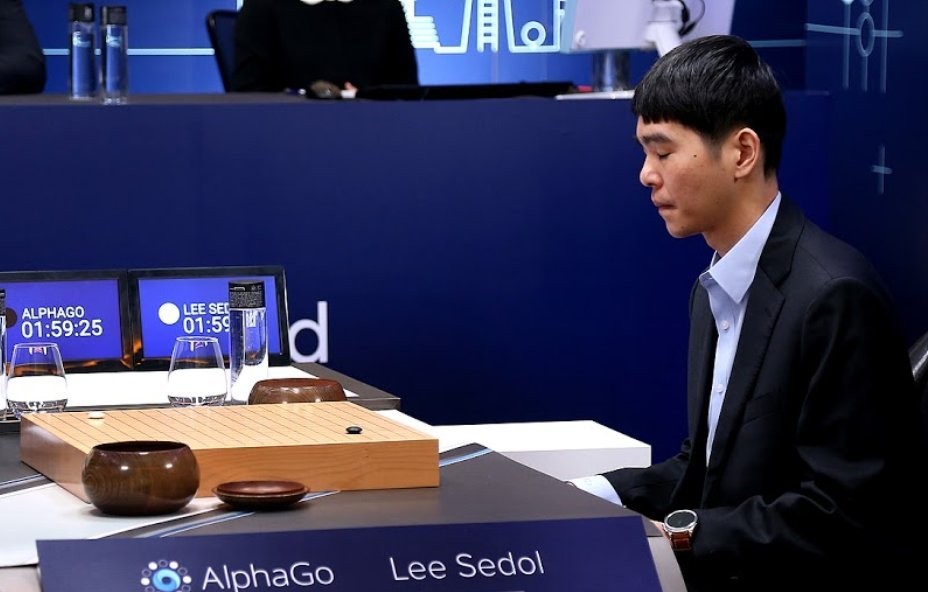- California Assembly OKs highest minimum wage in nation
- S. Korea unveils first graphic cigarette warnings
- US joins with South Korea, Japan in bid to deter North Korea
- LPGA golfer Chun In-gee finally back in action
- S. Korea won’t be top seed in final World Cup qualification round
- US men’s soccer misses 2nd straight Olympics
- US back on track in qualifying with 4-0 win over Guatemala
- High-intensity workout injuries spawn cottage industry
- CDC expands range of Zika mosquitoes into parts of Northeast
- Who knew? ‘The Walking Dead’ is helping families connect
Computer beats human Go champion
People have always been fascinated by how advanced computers can become, namely how close to the human brain can computers simulate.
Now, you just saw Google’s AlphaGO handily defeat human champion Lee Se-dol 4-1 in a five-game series that ended last week. Before AlphaGo’s victory, the ancient Chinese board game was seen as too complex for computers to master, but the week-long showdown further confirmed the computer software has mastered a major challenge for artificial intelligence (AI).
Back in 1997, IMB reached a milestone when its program, Deep Blue, beat the chess wizard, Gary Kaparov. This was a breakthrough in computing as the software had to go beyond merely calculating the probabilities and choosing the best option.
In the game of chess, there are 35 legal moves at each turn with about 80 turns per game. Thus it was thought to be almost impossible to enumerate every move in a timely manner to carry on a match.
IBM’s Deep Blue solved this by approaching the game not only from the perspective of probability, but also from selective search. This is to say that the computer made value decisions given the information available.
However, in Go (baduk), the complexity is exponentially higher as there are many more possible moves with the game requiring many more turns than chess. For example, rather than 35 legal moves as in chess, Go has 250 and the game typically requires 150 turns as opposed to 80. This means that the computer must be able to rank enormous amount of possibilities if it were to base its decision just on probability.
Seemingly impossible, Google’s AlphaGo had to utilize a model that simulates the human brain’s process of learning and making decisions. David Silver, the co-lead researcher on AlphaGo’s program, DeepMind, described this as “looking ahead by playing out the game in its imagination, many times over.” In other words, it had to truly think about its moves by learning from its successes as well as its failures.
Google officials say the company hopes to apply technologies used in AlphaGo to eventually help solve real-world problems.



















Pingback: Millennials hire computers to invest their money - Technology flare
kelly
November 27, 2017 at 10:14 AM
yes..I like the basic concepts behind Second Life but it seems incredibly outdated and when I played it was intensely non-intuitive / user friendly to an extent that made EVE look like a game for toddlers. thanks from
togel online